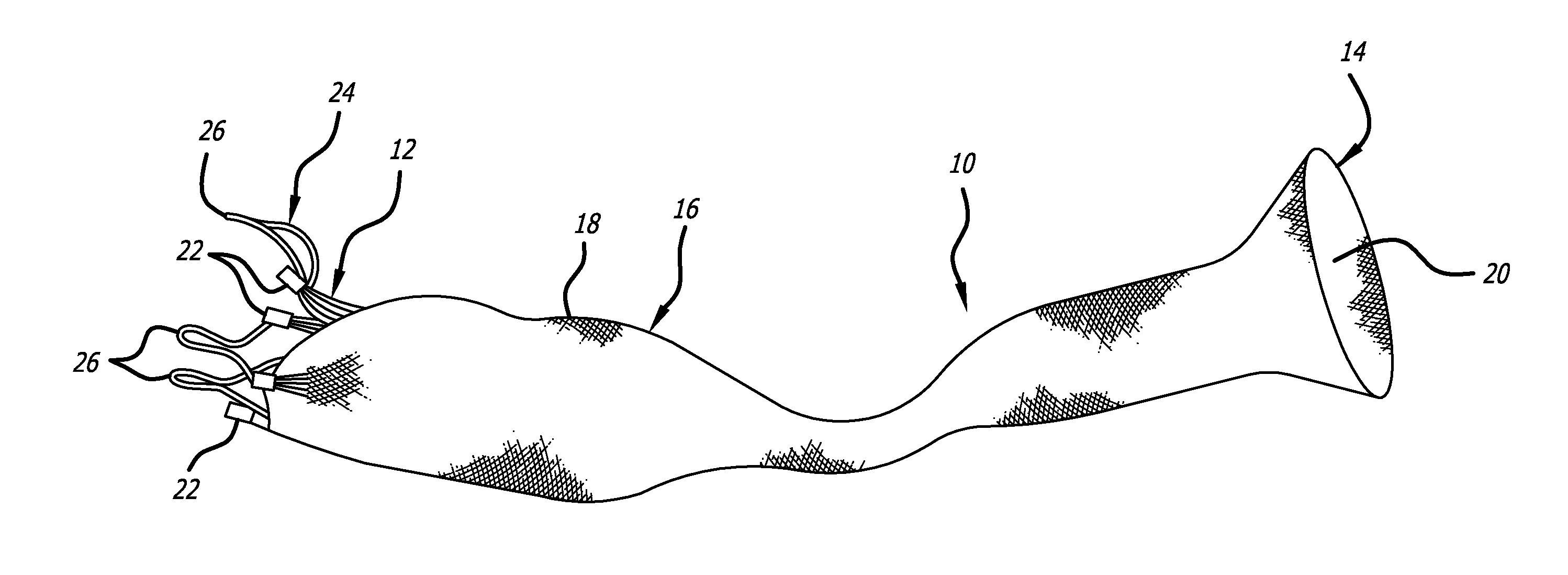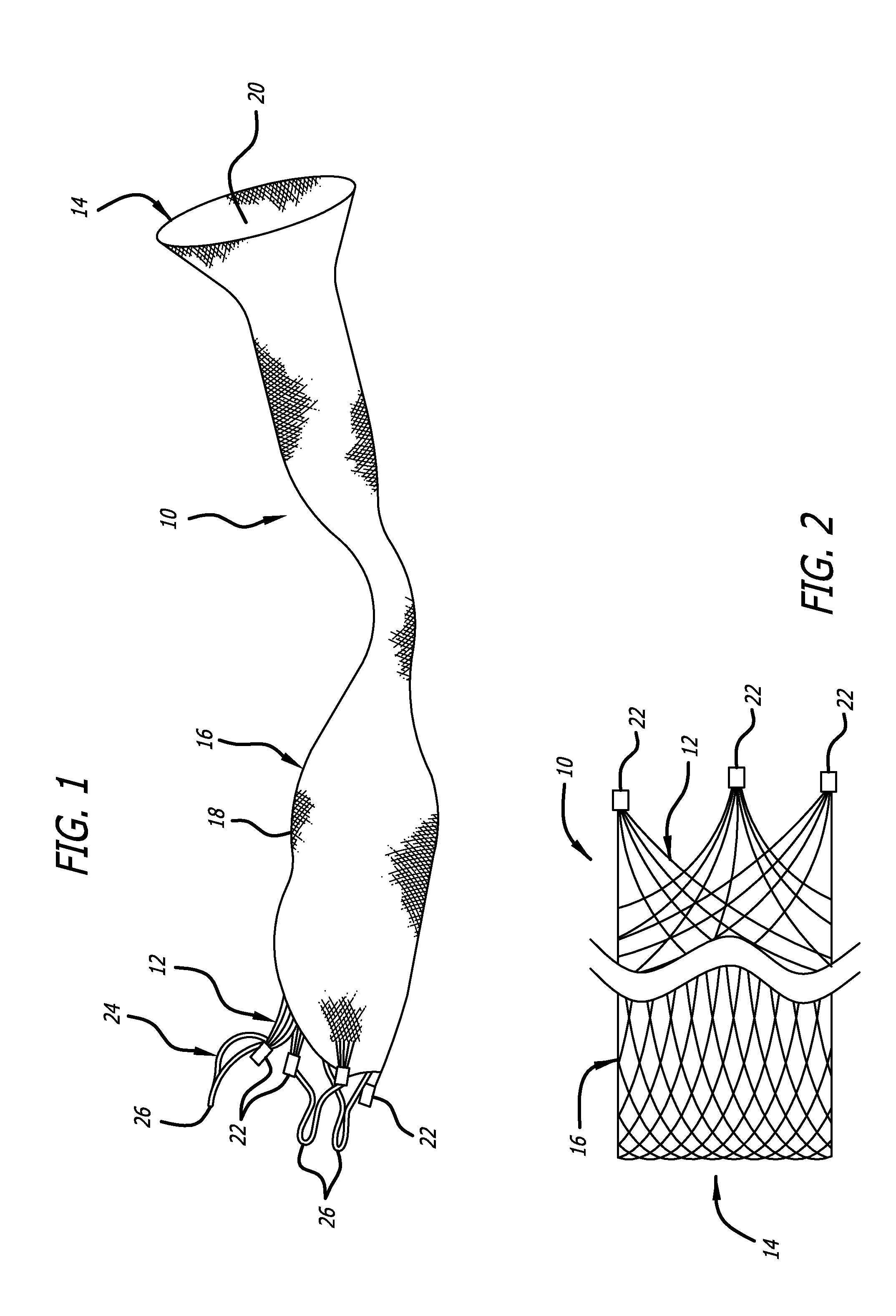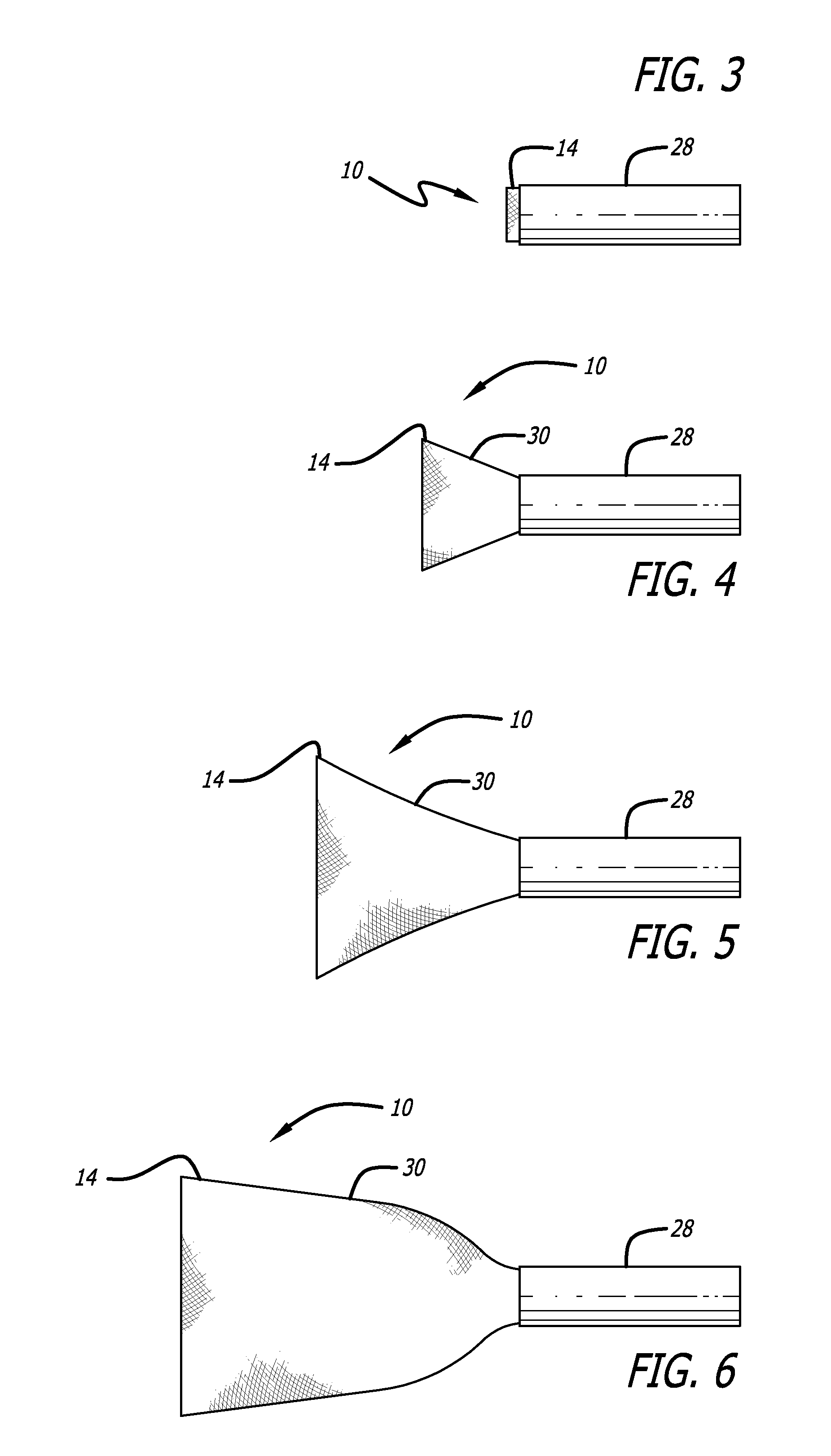Stentless Support Structure
a support structure and stent technology, applied in the field of stentless support structure, can solve the problems of stenosis, narrowing of the passageway through the valve, heart failure and ultimately death, and great discomfor
- Summary
- Abstract
- Description
- Claims
- Application Information
AI Technical Summary
Benefits of technology
Problems solved by technology
Method used
Image
Examples
Embodiment Construction
[0045]Referring now to the Figures and first to FIG. 1, there is shown a stentless support structure 10 of the present invention in an extended configuration. The valve support 10 includes a first end 12, a second end 14 and an elongate tubular body 16 extending between the first end 12 and the second end 14.
[0046]The elongate tubular body 16 is preferably formed from one or a plurality of braided strands 18. The braided strands 18 are strands of a super-elastic or shape memory material such as Nitinol. The strands are braided to form a tube having a central lumen 20 passing therethrough.
[0047]In one embodiment, the tubular body 16 is folded in half upon itself such that the second end 14 becomes a folded end and the first end 12 includes a plurality of unbraided strands. The tubular body 16 is thus two-ply. The unbraided strands of the first end 12 are gathered and joined together to form a plurality of gathered ends 22. The gathered ends 22 may be used as commissural points for at...
PUM
 Login to View More
Login to View More Abstract
Description
Claims
Application Information
 Login to View More
Login to View More - R&D
- Intellectual Property
- Life Sciences
- Materials
- Tech Scout
- Unparalleled Data Quality
- Higher Quality Content
- 60% Fewer Hallucinations
Browse by: Latest US Patents, China's latest patents, Technical Efficacy Thesaurus, Application Domain, Technology Topic, Popular Technical Reports.
© 2025 PatSnap. All rights reserved.Legal|Privacy policy|Modern Slavery Act Transparency Statement|Sitemap|About US| Contact US: help@patsnap.com



